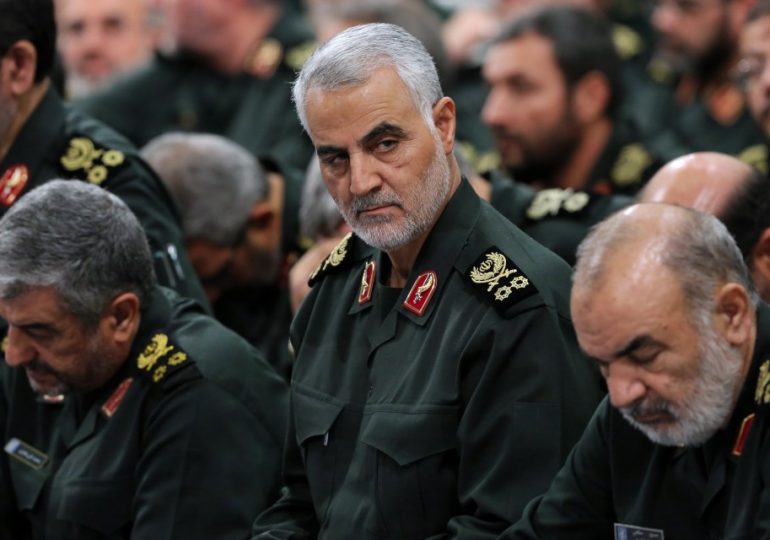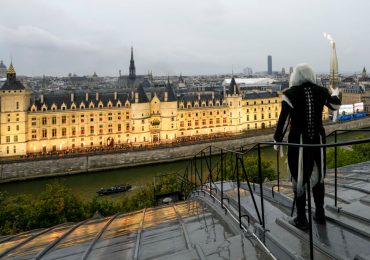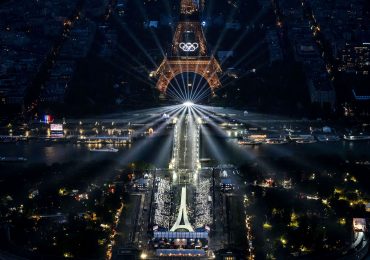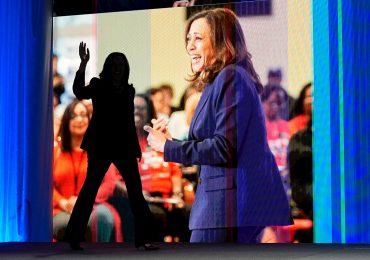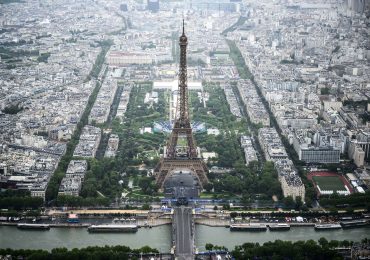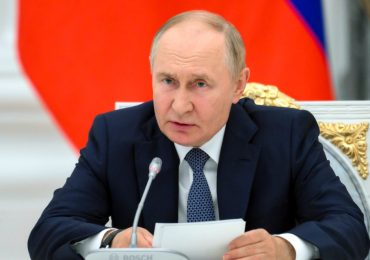IRAN has claimed that Hamas’s October 7 attacks were in revenge for a 2020 assassination of a top Iranian general.
The Iranian Revolutionary Guards Corps (IRGC) branded the US strike that killed Qasem Soleimani a “terrorist act” – but Hamas denies it was their motivator for their massacres in Israel.
EPAQasem Soleimani, IRGC Major General and commander of the Quds Force, was killed in 2020 by a US strike[/caption]
GettyIran stated that October 7 was in revenge for the Soleimani assassination[/caption]
Iranian protesters burnt an Israeli flag during a recent anti-Israel rally as the Israel-Hamas war threatens to spark an all-out war across the region
IRGC spokesman Ramazan Sharif directly tied Hamas’s October 7 killing spree to the US’ slaying of Soleimani and called it “one of the revenges” Iran plans to carry out.
The military commander was blown up by a US drone in a strike ordered by former President Donald Trump.
It provoked a furious response from Iran who called on the UN’s Security Council to take formal action against both the US and Israel – which it also accused of assisting in the assassination hit.
The planned killing was in motion since as far back as 2017, US officials later admitted, following Trump’s intentions to withdraw from the Iranian nuclear deal to impose sanctions on the pariah state.
Soleimani spearheaded Iran‘s military operations in the Middle East as head of the country’s elite Quds Force.
He joined the Revolutionary Guards – who have been declared a foreign terrorist organisation by the US – in 1979, taking over as head of the Quds Force in 1998.
The terror leader was considered to be one of the most powerful figures in the country, masterminding Iranian intelligence and military operations abroad.
Hamas swiftly denied Iran’s claims and insisted the October 7 massacres were in response to the ongoing “occupation” and “dangers threatening the Al-Aqsa Mosque,” referring to the key Islamic site in Jerusalem.
It comes as the IRGC today also addressed the killing of a high-ranking Iranian general in Damascus on Monday that they have accused Israel of carrying out.
The IRGC called the assassination an “act of terror” and vowed their response “will be decisive at the right time and place.”
“We will respond accordingly, directly or indirectly through the resistance axis,” they added.
The IDF has not taken responsibility for the strike.
“I will not comment on various actions we take,” Chief of the General Staff Halevi Halevi said.
“We take whatever action necessary to make it very clear that we are very determined to defend the country, are willing to go far,” he warned.
Brigadier General Sayyed Razi Mousavi was in charge of coordinating the military alliance between Syria and Iran.
“Undoubtedly, the usurper and savage Zionist regime will pay for this crime,” Iranian President Ebrahim Raisi said in a statement read on state TV.
“This action is another sign of frustration, helplessness, and inability of the occupying Zionist regime.”
Iran’s proxy in Lebanon, Hezbollah, also released a statement mourning the death of Mousavi.
The terror group called him “one of the best brothers who worked to support the Islamic resistance in Lebanon for decades.”
The assassination came amid ongoing fears that the Israel-Hamas war risks a regional spillover as Iranian proxies in Yemen, Lebanon and Iraq continue launch attacks on Israel and its allies in support of Hamas.
Clashes in Israel’s north with Hezbollah have continued to intensify, with continuous rockets and missiles thrown over the border.
In the Red Sea, the Houthi rebels have been wreaking havoc by attacking any vessels seen to be travelling to and from Israeli ports – hijacking boats and launching rocket and drone attacks.
The Islamist militant group is holding roughly £1trillion of world trade hostage by turning one of the world’s busiest shipping lanes into an active warzone.
The US has been forced to lead a multinational task force to attempt to restore order and the free movement of goods.
Meanwhile, Israeli leaders are steeled for two more years of war in Gaza as they press on with plans to destroy Hamas.
Ministers were told the army is about to enter phase three of the war to wipe out the terror group as a military force.
The IDF might achieve that target by the summer but it could take two years, a Cabinet briefing warned.
And defence minister Yoav Gallant said: “The war in Gaza will be a long, hard war. It has costs — heavy costs — but its justification is the highest that can be. We need determination, endurance, strength and national cohesion with the goals.
“This is a battle of national determination and I tell you that we will defeat Hamas.”
The Hamas-run health ministry in Gaza says 20,915 Palestinians have been killed in more than 11 weeks of fighting.
A high-ranking Iranian general Sayyed Razi Mousavi was killed on Christmas Day in Syria
GettyIsrael said it is prepared to spend two years at war with Hamas[/caption]
Leave a comment
